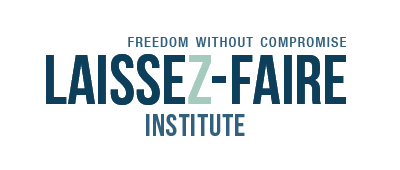Ladies and gentlemen of the jury, I know you've spent all morning listening to Mr. Broygo talk; I know you're hungry; what I need to tell you won't take very long at all. I don't like Alexander Cullen. I don't think he's a nice person. I don't expect you to like him. He's been a terrible husband to all three of his wives; he's been a destructive force in the lives of his stepchildren; he's cheated the city, his partners, his employees. He's paid hundreds of thousands of dollars in penalties and fines over the years. I don't like him. I'm going to tell you some things during the course of this trial that are going to make you like him even less. But this isn't a popularity contest: it's a murder trial.
A free man must be able to endure it when his fellow men act and live otherwise than he considers proper. He must free himself from the habit, just as soon as something does not please him, of calling for the police.
Luwdig von Mises
If we wish to preserve a free society, it is essential that we recognize that the desirability of a particular object is not sufficient justification for the use of coercion.
Friedrich Hayek
If we're talking politics, or law, then it's not about your opinion. It's about what you do or do not have the right to do. Anything else is a category confusion.
As a civilized person, you need to understand one very simple thing : that your preferences do not give you the right to use violence. The only thing that gives you the right to use violence is an infrigment on your legitimate property rights.
The political debate is always about using violence. But there are differents levels at which the question is asked. There are different frames within which the debate takes places. The usually accepted frame is that we have the right to use violence to impose our preferences on others - provided we first elect some guy who's gonna be in charge of ordering other guys to write rules on paper, rules on paper that are gonna be enforced by a bunch of other guys with guns. The only question left to answer then is who's gonna be that guy. In more direct democracies, like Switzerland, we can vote directly on the rules on paper, without using the proxy of the guy. Well. The debate is then about what the preferences about to be imposed on others by violence are.
The debate then becomes a debate about, e. g., the effects of drugs, the "morality" of homosexuality, genetic differences between men and women or races or groups of people, etc. Somehow, the debate becomes between whether we must take drugs or abstain from taking them, hate gays or love gays, etc.
Politics, however, is not a high school prom popularity contest. Politics is about the legitimate use of violence. All those questions, therefore, interesting as they might be, are completely irrelevant when it comes to politics. Just because the violence has been delegated through varioux proxies doesn't make it disappear.
Whether I think gay people are great and everyone should be gay, or that gay people will all burn in hell is completely irrelevant to the question of my right to use violence against them, or not. In Uganda, homosexuals are persecuted and killed with the argument that they perform disgusting sexual acts. But at what point exactly does this even begin to justify the use of violence ?
Yes, we do live in the Dark Ages. In other parts of the world, the issue is exactly the same. What changes is only the degree of stupidity, superstition, and intolerance, not the general principle.
Every political debate thus has to be reframed back to what it really entails: the use of violence. And therefore, to the real question: does your proposal imply the use of violence against people who have themselves committed an act of violence, or is it actually an aggression against people who, however despicable they might be, have never hurt a fly?
Once you understand the real issue (use of violence) and the real question (whether to use violence only against aggressions, or arbitrarily), and acknowledge what the civilized answer is, you'll have to pick your causes, and choose the arguments you use accordingly.
If the goal is to fight arbitrary violence, considering it as evil, does it make sense to defend non-violence by saying that it in fact helps violence, to defend the good by first accepting the frame that the goal we must fight for is evil, and that the good can only be acceptable as a means towards that evil end?
Good must be defended because it is good and will combat evil... not because it will help evil. Defending the good using the argument that somehow it can fit in the long-run agenda of evil is, well, twisted at best.
Seems pretty straightforward, right? And yet. Let's check a few examples.
Socialism is a criminal ideology, since it advocates the use of aggressive violence against people who have committed no aggression. Case closed.
In Switzerland, for instance, we had a proposal to use violence against people in order to force them to pay wages to other people below or above what they voluntarily accepted to pay. Violence against people who have committed no violence.
What was one of the arguments used against this violent, thus evil, proposal?
That it would lower tax revenue. That is, that it would lower the amount of money stolen through violence by the State. Yes, you read that right: the argument used against a proposal to use aggressive violence against a group of people, was that this new violence would be bad because it would reduce another violence.
Christianism, as defined in the Bible, is a criminal ideology, since it advocates the use of aggressive violence against people who committed no agression, for instance:
Whoever does any work on the Sabbath day is to be put to death
Case closed.
So if you're against one form of violence or another, does it make the slightest bit of sense to argue that your anti-aggression stance is somehow compatible with the pro-aggression ideology? Nope.
You cannot fight evil by accepting the premise that evil is good. If someone accepts aggression, thinks that his opinions give him the right to use violence against people who have done no harm to anyone, that is the problem. The point is not to change that person's opinion on the preferred direction of that aggression. The point is to change the frame. You won't win by changing people's opinions within a frame. You'll win by changing the frame, making those opinions irrelevant.
— You libertarians are the types that would allow fornication in public parks!
— What do you mean, PUBLIC parks?

